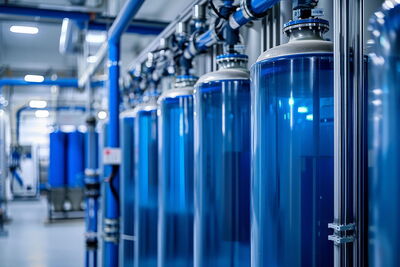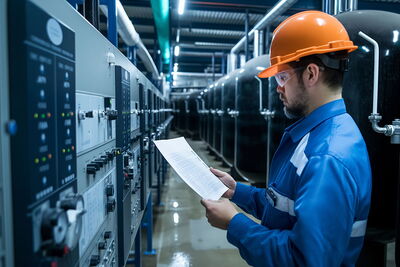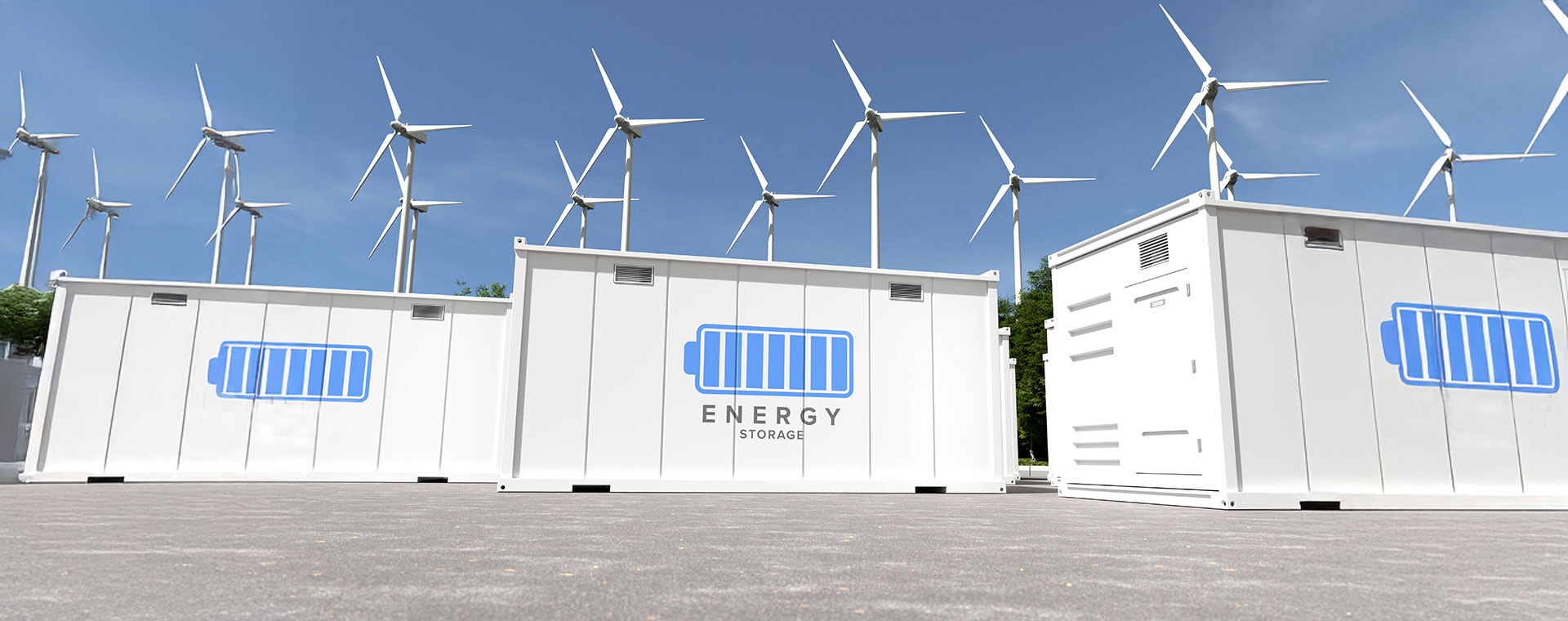Water treatment plant for battery production
A water treatment plant is a crucial component in battery cell production. It ensures that the water required for production is freed from impurities, which is of great importance for the quality and performance of the batteries.
The water treatment plant in battery production plays a central role in producing high-purity water required for critical manufacturing processes. These systems effectively remove ions and organic contaminants from the water, which is essential for the production of battery cells.
The process units of a pure water plant for battery cell production are complex and include various components that work together to achieve the required water quality. Here are some of the key ingredients:
Pre-filtration: Removes larger particles and suspended solids from the raw water.
Activated carbon filter: Eliminates organic contaminants and chlorine.
Ion exchanger: Removes ions from water to deionize it.
Reverse osmosis system: Separates dissolved solids and microorganisms from the water.
UV sterilization: Disinfects the water by killing bacteria and viruses.
Microfiltration: Removes the finest particles and provides additional cleaning.
Final filtration: Ensures the removal of the last impurities before use in the production process.
Precision and passion - water quality Made in Germany by Artas ultrapure water systems

Deionization: Produces deionized water directly from tap water.
Compact design: Ideal for users who require small amounts of pure water
High purity: Ensures water quality with a conductivity of 1 μS/cm and a resistance of over 1 MΩ·cm at 25 °C1.

In the production of batteries, certain properties of pure water are particularly important to ensure the quality and performance of the final products. Here are some of the critical pure water properties:
Low conductivity: The water should have a very low conductivity, ideally below 1 μS/cm. This indicates a low content of dissolved ions, which is crucial for battery production.
High resistance: A high resistivity of over 1 MΩ·cm at 25 °C is required to ensure the electrochemical purity of the water.
Low Total Organic Carbon (TOC): The TOC value should be as low as possible, as organic contaminants can interfere with battery chemistry.
No particles: The water should be free of particles, as they can damage the sensitive battery components or affect performance.
No bacteria: Bacterial contamination must be avoided as it can contaminate the battery materials and compromise the durability and safety of the batteries.

Battery cell production: pure water for electrode production and electrolyte mixing.
Battery recycling: Supports processes such as evaporation and crystallization to recover raw materials such as nickel, cobalt or lithium2.






